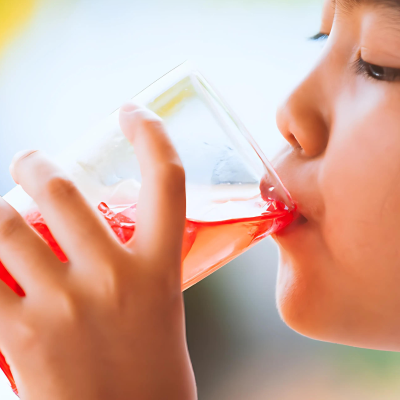The moment your baby begins to hold their own bottle is a significant milestone in their development. It represents a growing level of independence and motor skill advancement. This transition can make feeding times more enjoyable for both you and your baby and is an important step toward self-feeding and coordination. In this comprehensive article, we will explore when babies typically start holding bottles, the factors that influence this ability, and practical tips for supporting your baby through this milestone.
Understanding the Milestone of Holding a Bottle
Holding a bottle involves several key developmental skills, including hand-eye coordination, grip strength, and fine motor control. It is a sign that your baby is developing the necessary skills to transition from being completely dependent on you for feeding to taking an active role in the process.
Typical Age Range
Babies usually begin to show interest in holding their own bottle between 4 to 6 months of age. However, the exact timing can vary based on individual development and other factors. Here’s a general timeline of what to expect:
- Early Attempts (4-6 Months): Around 4 to 6 months, babies start to develop the hand-eye coordination needed to grasp and hold objects, including a bottle. At this stage, they may show interest in grabbing the bottle but might still need assistance to hold it steady.
- Improved Control (6-8 Months): By 6 to 8 months, babies generally have better control over their hand movements and grip strength. They may be able to hold the bottle with more stability and may even be able to guide it to their mouth with minimal help.
- Independent Holding (8-12 Months): Between 8 to 12 months, many babies can hold the bottle independently and drink from it without assistance. They may also start to use both hands to hold the bottle, which helps with balance and control.
Factors Influencing When a Baby Can Hold a Bottle
Several factors can influence when your baby is able to hold a bottle on their own. These include:
1. Motor Skill Development
The development of fine and gross motor skills is crucial for holding a bottle. Babies need to develop hand-eye coordination, grip strength, and the ability to control their movements to hold and maneuver the bottle effectively. Each baby develops these skills at their own pace.
2. Muscle Strength
Strong arm and hand muscles are essential for holding a bottle. Babies build muscle strength through activities such as tummy time, reaching for toys, and crawling. These activities contribute to the development of the muscles needed for holding objects.
3. Cognitive Development
Cognitive development plays a role in a baby’s ability to understand how to hold and use a bottle. As babies grow, they develop problem-solving skills and spatial awareness, which help them figure out how to grasp and maneuver the bottle.
4. Practice and Experience
The more opportunities a baby has to practice holding objects, the more likely they are to master the skill of holding a bottle. Regular practice with a variety of toys and objects can help improve their grip and coordination.
How to Encourage Your Baby to Hold a Bottle
If you want to support your baby in reaching the milestone of holding a bottle, consider the following tips:
1. Choose the Right Bottle
Select a bottle that is easy for your baby to grip. Bottles with handles or ergonomic designs can make it easier for your baby to hold and maneuver. Soft, squeezable bottles with a wide base can also be helpful for beginners.
2. Provide Opportunities for Practice
Encourage your baby to practice holding the bottle by offering it to them during feeding times. Gently guide their hands to the bottle and let them experiment with holding it. Offer praise and encouragement to motivate them.
3. Use a Two-Handed Approach
Initially, your baby may use both hands to hold the bottle. This is normal and helps them develop the necessary coordination and balance. Allow them to use two hands until they build enough strength and control to hold the bottle with one hand.
4. Incorporate Playtime
Incorporate bottle-holding practice into playtime. Offer toys and objects that are similar in size and shape to a bottle to help your baby practice their grip and coordination. Playful activities can make the learning process enjoyable and engaging.
5. Be Patient and Supportive
Every baby develops at their own pace, so be patient and supportive as your baby learns to hold the bottle. Avoid rushing the process or forcing the bottle into their hands. Instead, provide gentle guidance and encouragement.
Common Challenges and Solutions
While many babies successfully learn to hold a bottle, there may be some challenges along the way. Here are a few common issues and solutions:
1. Difficulty Grasping the Bottle
If your baby struggles to grasp the bottle, try using a bottle with a wider handle or an ergonomic design that is easier for them to hold. Additionally, you can assist by placing their hands around the bottle and gently guiding their grip.
2. Lack of Interest
If your baby shows little interest in holding the bottle, it may be helpful to introduce it gradually. Allow your baby to explore the bottle on their own terms and offer it during playtime as well as feeding time.
3. Discomfort or Frustration
If your baby becomes frustrated or uncomfortable while trying to hold the bottle, take a break and try again later. Ensure that the bottle is at a comfortable temperature and that your baby is in a relaxed, supportive position.
4. Using the Bottle as a Toy
Sometimes, babies may treat the bottle as a toy rather than a feeding tool. If this happens, try offering a different type of toy or engaging your baby in other activities to redirect their attention.
Transitioning from Bottle to Cup
Once your baby has mastered holding a bottle, you may start considering the transition to a sippy cup or regular cup. This is another important milestone that helps prepare your baby for independent drinking. Here are some tips for making the transition:
1. Introduce a Sippy Cup Early
Introduce a sippy cup around 6 to 9 months of age to help your baby get used to the idea of drinking from a cup. Choose a sippy cup with handles and a spout that is easy for your baby to use.
2. Gradual Transition
Start by offering the sippy cup during mealtimes and gradually reduce bottle feedings. This allows your baby to become accustomed to drinking from a cup while still having the comfort of the bottle.
3. Encourage Practice
Encourage your baby to practice using the sippy cup during playtime and mealtimes. Offer praise and positive reinforcement as they learn to drink from the cup.
4. Transition to Regular Cups
Once your baby is comfortable with the sippy cup, you can introduce regular cups with a small amount of liquid. Start with a small, lightweight cup and offer it during meals and snack times.
Monitoring Your Baby’s Progress
As your baby progresses through the milestone of holding a bottle and eventually transitioning to a cup, it’s important to monitor their overall development. Keep track of their motor skills, feeding habits, and any changes in their behavior. If you have concerns about their development or feeding, consult with a pediatrician for guidance and support.
Supporting Your Baby’s Development Beyond Bottle Holding
Holding a bottle is just one of many milestones in your baby’s development. To support their overall growth, consider the following practices:
1. Promote Fine Motor Skills
Engage your baby in activities that promote fine motor skills, such as grasping toys, stacking blocks, and finger painting. These activities help improve hand-eye coordination and dexterity.
2. Encourage Gross Motor Skills
Support the development of gross motor skills through activities like tummy time, crawling, and climbing. These activities build strength and coordination, which are essential for future milestones.
3. Foster Cognitive Development
Stimulate cognitive development by offering toys and activities that encourage problem-solving and exploration. Interactive toys, puzzles, and sensory activities can help your baby develop critical thinking skills.
4. Support Social and Emotional Growth
Encourage social interaction and emotional development by engaging in playful activities, reading together, and providing opportunities for your baby to interact with other children. Positive social interactions support emotional well-being and communication skills.
5. Maintain a Consistent Routine
Establish a consistent daily routine for feeding, sleeping, and playtime. A predictable routine provides a sense of security and helps your baby develop healthy habits and behaviors.
Conclusion
The milestone of holding a bottle is a significant and exciting development in your baby’s growth journey. It represents their increasing independence and the development of essential motor skills. By understanding when babies typically start holding bottles, the factors influencing this milestone, and practical tips for encouragement, you can support your baby through this important phase.
Remember that each baby develops at their own pace, and it’s important to provide patience, encouragement, and support as they reach new milestones. Celebrate their achievements and continue to offer opportunities for practice and growth. As your baby progresses from holding a bottle to drinking from a cup and beyond, you’ll be supporting their overall development and helping them build the skills they need for future success.




